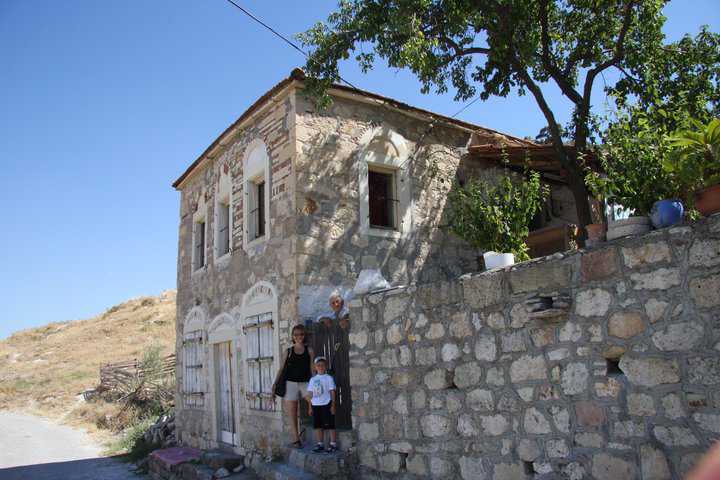Turkey’s ‘moral politics’ in Libya: Seduction by analogy?
by Şaban Kardaş
| Turkey’s policy on Libya so far has drawn criticism from many angles, most notably due to the growing dissonance between Ankara and the international community on the issue of pursuing coercive policies against the Gaddafi regime’s use of brutal force against its own people to crack down first on the peaceful demonstrations and later the uprising across the country. | |
| Prime Minister Recep Tayyip Erdoğan and other Turkish officials have expressed opposition to imposing sanctions on Libya, as the United Nations Security Council was evaluating the unfolding crisis. Later, as the attention shifted towards the establishment of a no-fly zone or even a military intervention against the Gaddafi forces, Turkey again objected to those calls.
Against this background, it is often possible to hear criticism that Turkey is pursuing immoral policies or taking a pro-Gaddafi stance. Interestingly, however, Erdoğan not only claims that Turkey is in fact the only country that follows moral politics in this case, but he also maintains that the Western powers contemplating coercive policies against Libya are driven by material interests. There is indeed a dilemma here: How come a country claiming to follow an ethical approach to the crisis has been against the actions whose declared aim is to end the crimes against humanity perpetrated by Gaddafi forces? One can point to various reasons why Turkey is openly opposed to a more robust international reaction to the Gaddafi regime. As some Turkish diplomatic sources underline, in a situation where Turkey has investments in the country worth billions of dollars and many Turkish citizens have been stranded in Libya, it would not be wise to take a clear side in the unfolding civil war between the Gaddafi regime and the opposition forces. One can sympathize with this argument, for above all, the Turkish government is obliged to protect the interests of its own citizens and cannot be expected to take any action which might put them in harm’s way. Moreover, one can also debate the justifiability of military action on practical grounds. Indeed, Foreign Minister Ahmet Davutoğlu made such an argument when he stated his reservations to a military option, saying that it would make the situation even worse and that a foreign military presence would not be welcome by the Libyan people, including the leaders of the rebellion against Gaddafi. From a realpolitik point of view, these are all plausible arguments, and many other Western leaders have utilized similar justifications. Yet, one is puzzled by Erdoğan’s statements on the subject, which makes one think that there is more to Turkey’s objections to sanctions or a no-fly zone. Erdoğan’s position is rather categorical in the sense that his opposition is not based necessarily on the content of the policy instruments under consideration. For instance, when he said he was against the introduction of sanctions because they would hurt the Libyan people and that sanctions would never work, there was in fact nothing in the list of sanctions approved by the UN Security Council to harm the Libyan people per se. They targeted the Gaddafi regime and called for an investigation into the violations of human rights. Similarly, on the issue of using military instruments or inviting NATO to play a role in such a scenario, Erdoğan again raised a categorical objection. He not only maintained that a military option would create more trouble, he also questioned the involvement of NATO. For him, intervention in Libya will not be NATO’s business, as its only task is to protect member states. This was quite a puzzling statement coming from a Turkish leader, if one recalls that it was Turkey that advocated NATO’s humanitarian interventions in the Balkans throughout the 1990s. Although no NATO member was under attack, Turkey worked hard to convince the alliance to intervene in Bosnia and later Kosovo to protect its coreligionists against the Serbian forces. This is quite a dramatic change, indeed. ‘The seduction by analogy’Such categorical objections raised by Turkish leaders suggest that they might partly be suffering from what Yuen Foong Khong once called “the seduction by analogy” problem. Analogies guide the thinking of leaders in crisis situations. When confronted with a situation full of unknowns, many decision makers relate the crisis at hand to past instances that have resemblance to the case at hand. When carefully selected, analogies in fact are useful tools; for instance, they might help reduce the time for processing information and choose the right policy responses. However, analogies may also result in disastrous foreign policy decisions. Decision makers may resort to analogies as an excuse to avoid investing the necessary time to study the particularities of each case. Moreover, once formed, analogies can become self-perpetuating myths and act as mental shortcuts, in that decision makers may be seduced to interpret new developments under the light of familiar experiences from the past. As a result, more often than not, the lessons drawn from past analogies are applied to new cases without careful consideration of the underlying differences and similarities. A close examination of Erdoğan and other Turkish officials’ statements on Libya shows that the analogies they often resort to are the cases of Afghanistan and Iraq. The misguided American interventions in these two cases and the resulting destruction have affected the thinking of Turkish leaders in the last decade. For years, Turkish leaders have watched how sanctions imposed on the Saddam regime produced nothing but misery for the Iraqi people. Moreover, having spent much of their energy on addressing the threats and risks created by the US military interventions, Turkish decision makers have grown increasingly skeptical of the ability of the international community to implement military instruments. This formative experience has bred an aversion against foreign involvement which has come to be seen as a source of humanitarian tragedy and regional instability. The analogies of Afghanistan and Iraq have shaped Turkey’s thinking in recent years, when foreign involvement in Turkey’s neighborhood was up for debate. A large part of Turkey’s opposition to US policy on Iran is based on the negative lessons drawn from these two experiences. Turkey’s thinly veiled opposition to American assistance to Georgia during the Russian-Georgian war of 2008 was also affected by the same mode of thinking on foreign intervention. It seems the same analogies are at work again and have come to determine Turkey’s position on Libya as well. At the same time, the use of such analogies, blended with anti-imperialistic rhetoric, resonate well with the Turkish public, which has turned increasingly nationalistic. What is at stake in Libya is the risk that the unfolding civil war might take a dramatic turn and warrant an international military action that might fall under the doctrine of humanitarian intervention. Although Turkey has taken part in humanitarian interventions in the past, it has failed to develop a principled position, and its approach has evolved case-by-case. Short of any principled position on humanitarian intervention, Turkish leaders are easily seduced to follow analogies that happen to fit to their domestic political agenda. However, they need to engage in a serious reconsideration as to whether they are using the right analogies in Libya, and whether Bosnia or Kosovo would not be better fits. More importantly, if they are serious about pursuing moral politics, they need to come to terms with cosmopolitan ideas and formulate a principled position on humanitarian intervention, independent of contextual factors. *–.html |






 Hospitality is one of the cornerstones of the Turkish way of life. Turkish people are the most gracious and generous hosts as a result of their naturalinstincts. In every corner of the country such a traditional hospitality will meet you. Every individual feels bound to honor his guest in the best possible manner. They will open their houses to every guest with a smiling face and withall their sincerity give the best seat and cook the best food for their guest. Turkish people are very understanding about foreigners’ different customs and they try to communicate in order to help visitors according to their code of hospitality. The mentality of that hospitality is “whatever religion you are from, whichever country you come from, whatever language you speak, you are’God’s Guest’ ,” so you deserve to be welcomed in the best manner.
Hospitality is one of the cornerstones of the Turkish way of life. Turkish people are the most gracious and generous hosts as a result of their naturalinstincts. In every corner of the country such a traditional hospitality will meet you. Every individual feels bound to honor his guest in the best possible manner. They will open their houses to every guest with a smiling face and withall their sincerity give the best seat and cook the best food for their guest. Turkish people are very understanding about foreigners’ different customs and they try to communicate in order to help visitors according to their code of hospitality. The mentality of that hospitality is “whatever religion you are from, whichever country you come from, whatever language you speak, you are’God’s Guest’ ,” so you deserve to be welcomed in the best manner.